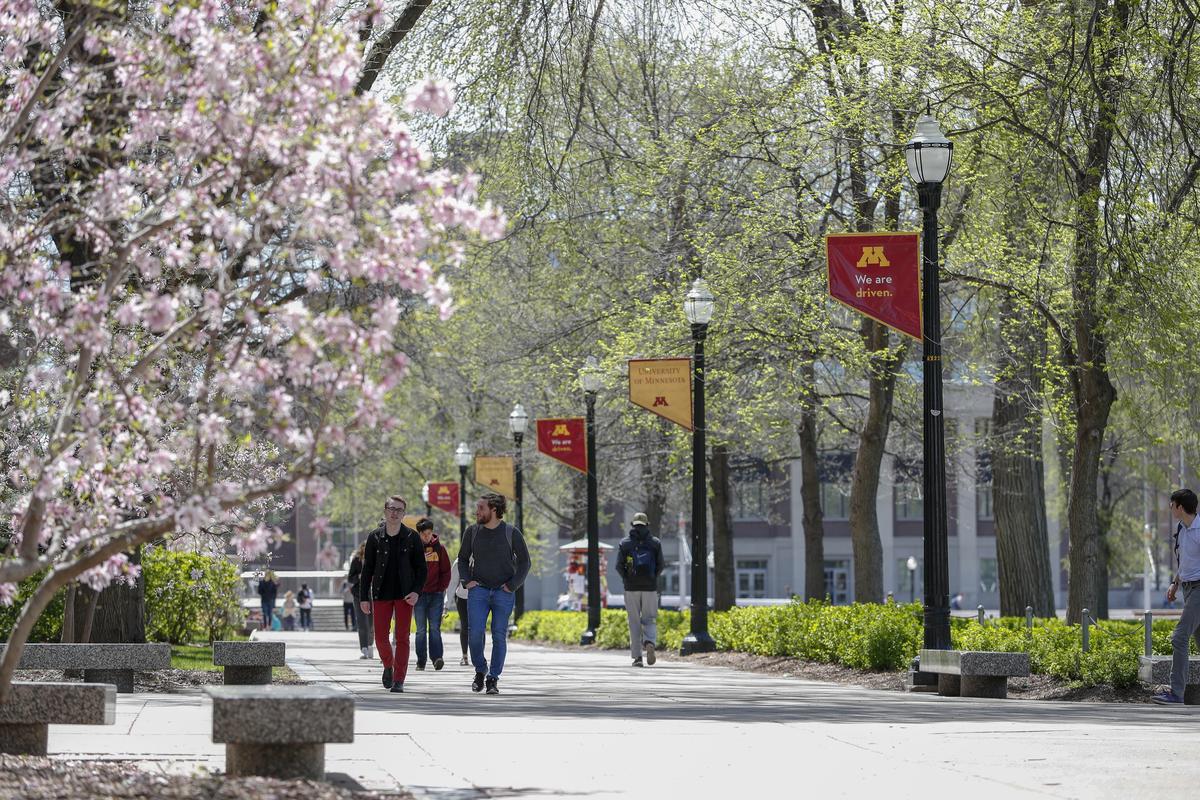
On this page are resources, policies, and guidelines to support students’ right to free expression. Also on this page are the consequences students may encounter when expressing their viewpoints in manners inconsistent with policy.
Whether a student is staging a protest, distributing information, or speaking out against injustice, the University supports the right to free expression in a safe and successful manner.
Planning an Event
Before planning an event, we encourage reading through the University’s policies regarding event management and planning.
- Events calendar or listing of events currently happening:
- Student Group events listed on GopherLink (gopherlink.umn.edu/events)
- Student Unions & Activities (sua.umn.edu/events)
- University Events Calendar (events.umn.edu)
- Distribution of Temporary Information through Publications, Banners or Chalking (policy.umn.edu/operations/publicationsbanners)
- “Freedom of speech is a guaranteed right under the U.S. Constitution and a core value of the University. To sustain an open exchange of ideas, the University community is asked to be tolerant of differing points of view and respect the rights of others to express themselves. Any member of the University community who finds posted or distributed materials to be offensive or disrespectful is encouraged to contact their campus resource (see Appendix.)
- Persons or groups distributing information are prohibited from:
- coercing of others by demands, threats, or other means to accept publications;
- interfering with or impeding the normal flow of either vehicular or pedestrian traffic on campus; or
- interfering with, disrupting, or otherwise advocating disruption or violation of any other lawful activity of any other person(s).
- Major Events policy
- Classroom Booking
- Outdoor Event Planning
Protesting
Given that the University of Minnesota is a public institution, it cannot unreasonably limit students’ First Amendment rights.
- The First Amendment does not protect civil disobedience or unlawful misconduct.
- “Even though the police or college can remove and possibly punish you for disruptive activity, like blocking traffic or interrupting classes, they can’t do so because they don’t like your message or point of view." FIRE (The Foundation for Individual Rights and Expression)
- The University of Minnesota is allowed to apply reasonable, content-neutral time/place/manner restrictions on protesting.The University does not have one single time/place/manner policy but does apply restrictions through use of outdoor space as well as policies applied to distribution of publications and chalking on campus. In addition, the Illinois ACLU has provided a short brief with information on time/place/manner restrictions and how a government actor can implement them.
- What you need to know before planning a demonstration:
- Know your rights:
- Generally, speech is constitutionally protected in traditional “public forums” such as public sidewalks and parks.
- Public streets can be used for marches subject to City or State permitting processes.
- University spaces can be used for public demonstrations subject to space reservations and permit permit processes.
- Know your rights:
- Students are encouraged to read the Student Conduct Code to understand what is not allowed at the University. For suspected violations, the University has a page dedicated to resolving Code violations.
- If you are involved with a violation of the Student Conduct Code, please see the The Office for Community Standards’ Disciplinary Process Resource for more information. Please note that Administrative Policy only applies where a sanction is sought for an alleged violation of the Student Conduct Code. The University disciplinary process is separate from any law enforcement disciplinary process, even if the alleged violation is the same in both cases. Please see the Support page for further resources and information.
- Demonstrations without a permit may be considered a violation of the Student Conduct Code. The following actions are violations of the University’s Student Conduct Code (see Section IV):
- Discriminatory Harrasment
- Refusal to Identify and Comply
- Harm to Others
- Theft, Property Damage, Vandalism
- Disruption of the Academic Environment
- Disruptive Behavior
- Falsification
- Unauthorized Use of and/or Access to University/Facilities or Services
- Violation of University Rules
- Violation of Local, State, or Federal Laws or Ordinances
- (*Note, this is not an exhaustive list.)
- Unlawful demonstrations:
- You can be arrested during a demonstration if you engage in unlawful behavior. Additionally, the police may treat “noncooperation” with the arrest process as a separate offense such as obstructing legal process, unlawful assembly, or presence at unlawful assembly, among others.
- In Minnesota, police can charge you with:
- Resisting arrest or obstructing the legal process
- Assault and Battery
- Disorderly Conduct
- (*Note, this is not an exhaustive list.)
Revocation of Honorific Namings
According to the Board of Regents Policy: Namings and Renamings, the president shall consider a revocation of any naming at the request of the Board or in response to a well-considered written request submitted by an individual or at the president’s own initiative. Anonymous revocation requests shall not be considered.
Additional information about the process can be found online here.
